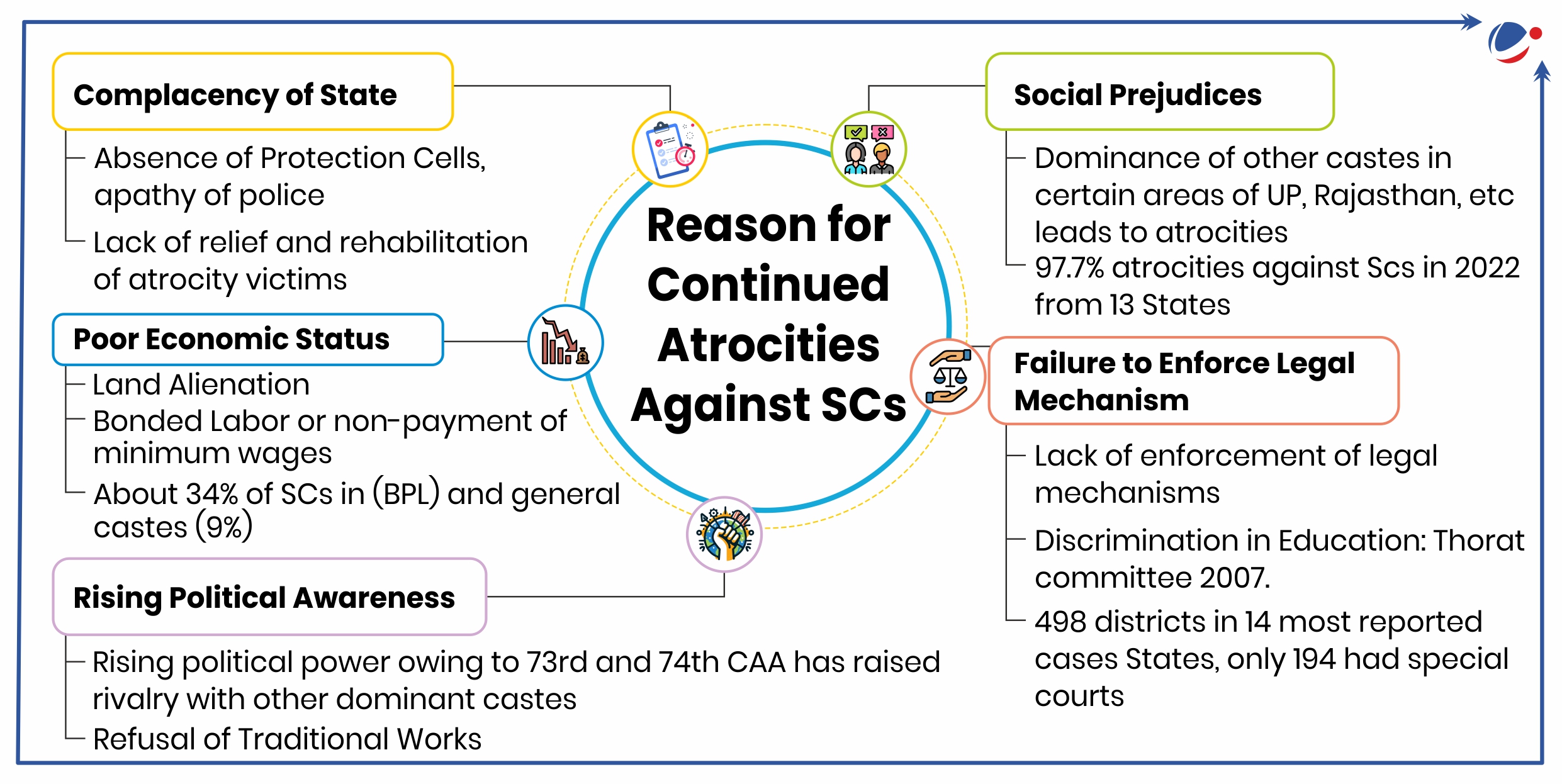Why in the News?
Standing Committee on Social Justice and Empowerment has raised concerns over the failure of several States to establish the necessary mechanisms to effectively address cases of atrocities against Scheduled Castes.
What are Scheduled castes and their background?
- Article 366 defines the term 'Scheduled Caste'. Under Article 341, the President may notify the Scheduled Castes for a state or UT after consulting the State governor (of the respective State). Parliament can amend this list by law.
- The term, "Scheduled Castes" was first incorporated into the Government of India Act of 1935.
Mechanism to tackle Caste based atrocities
|
Observations of Standing Committee on Social Justice and Empowerment
- Inefficiency in curbing atrocities against SCs: Several States have not been able to set up the requisite system to effectively implement Civil Rights (PCR) Act, 1955 and the Scheduled Castes and Scheduled Tribes (Prevention of Atrocities) Act, 1989.
- Sanitation workers: The aim of National Action for Mechanised Sanitation Ecosystem Scheme (NAMASTE) is to ensure that there are zero fatalities in sanitation work in India have been not attained.
- Absence of targets/goals: Several schemes under which physical targets are not fixed, such as Pradhan Mantri Adarsh Gram Yojana (PMAGY), Venture Capital Fund (VCF) for SCs etc.
- Surrender of fund in many schemes: Such as in the case of Scheme of Residential Education for Students in High School in Targeted Area (SHRESHTA) for SCs due to delay in submission of proposal by the State/ UT Governments to Centre.
- Apprehension of achieving Gross Enrolment Ratio in higher education: Target of GER of SCs at 27 per cent fixed to be achieved by 2025-26 looks difficult as several States are submitting reduced annual action plan or there is pendency in submission of plan.
- Lack of implementation of Pradhan Mantri Anusuchit Jaati Abhudaya Yojana (PM-AJAY): More villages are needed to declare as Adarsh Grams in their States as it has happened in Uttar Pradesh, Tamil Nadu etc.

Way Forward
- Utilize the funds for welfare schemes: States/UTs that are not able to justify their role in implementing the welfare schemes should be dealt strictly, ensuring beneficiaries are not deprived of any of the welfare Scheme.
- In the spirit cooperative federalism, States must actively contribute their share of resources for the smooth execution of centrally sponsored schemes.
- Quantifiable targets: Fix the physical targets of all the welfare schemes so that there is no laxity in the implementation of the Schemes at any stage by the States or other Implementing Agencies.
- Empowerment of National Institute of Social Defence (NISD): It addresses critical areas such as Drug Abuse prevention, rehabilitation of socially marginalized and vulnerable groups etc.
- Process of identifying the poorest households of SCs: So that benefits of various schemes reach to them such as enrolling the eligible SC students under The Scholarship for Higher Education for Young Achievers Scheme (SHREYAS).
- Skill training: Schemes like Pradhan Mantri Dakshta aur Kushalta Sampaan Hitgrahi (PM-DAKSH) for SCs, OBCs, sanitation workers and others should have larger outlay to cover large populace.





